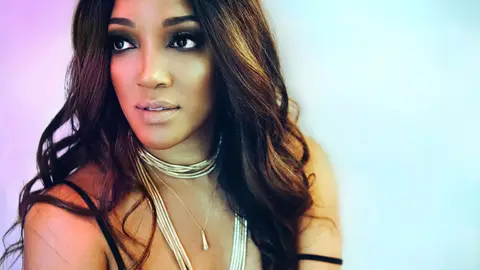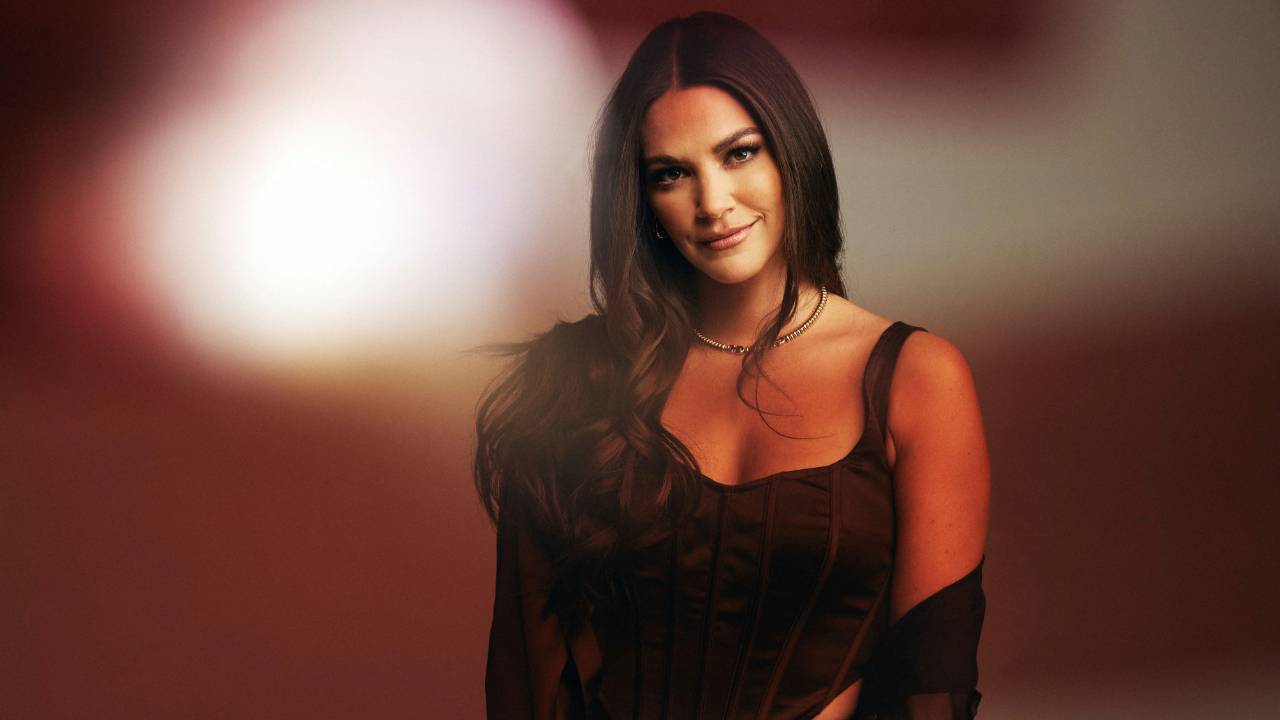Mickey Guyton Tells CMT About "What Are You Gonna Tell Her?"

Mickey Guyton is making a statement with her brand new single, “What Are You Gonna Tell Her?” During a visit with CMT Hot 20 Countdown, she shares the story behind the song, the sisterhood of songwriting, and the experience of singing it for the first time.
CMT Hot 20 Countdown airs at 9/8c Saturday and Sunday mornings.
CMT: For those who haven't had the privilege to hear "What Are You Gonna Tell Her" yet, how would you describe this song?
MG: This song is a call to action. We are all so obviously very much so aware of the problems with the lack of women being played on country radio and just getting played period in country music and getting signed, whether it's publishers or anything. It's a really, really hard position to be in. And I've been dealing with so many issues as being a woman for so long and I wanted to write about it.
A 15-year-old little girl hit me up on Instagram and she was like, "I'm moving to Nashville I’m gonna go to Belmont and what do I have to look forward to as a country music singer?" I didn't have anything to tell her. And that's a big problem. I wanted to write about it. I wrote the song about changing things so our daughters can be whomever they want to be.
As kids, we're told that we can be whatever we want to be when we grow up. And as women, when we grow up, we realize we can't be everything that we want to be when we grow up. And it needs to change.
I imagine these are all things that you sing about, many things you've dealt with in real life. Was it difficult putting that in on paper?
Absolutely. When I was writing “What Are You Going to Tell Her?” I cried throughout the entire writing session. I cried when I recorded it because it was so true to me. And it's so true to everyone. And this is everyone's problem. It's your problem as much as it is my problem.
We've got to fix this because I might have a daughter one day. And I don't want her to go through what I went through. Not everybody's strong enough to go through what I went through. And that's why I've changed my frame of mind. I want to fight for women. My music is fighting for women. And this song is that.
I'd say in some ways it's even broader than that because you touch on race morality, sexuality. Why is it important to have this conversation about really any group that's marginalized?
Just being an African-American woman and not always feeling like my voice should be heard and can be heard, I know what it feels like to be discriminated against. I can't imagine that that's any different for someone who is gay or someone who is white, black, whatever. We all go through something like that in our lifetime.
I've been excluded from a lot of things in my life and I don't want that to happen to anybody else because it is really, really hard for me. It took a lot of therapy to even get over that and I'm still not over it. So I just want to be the person that can fight for people that can't necessarily fend for themselves.
Absolutely. When I wrote this song, it's basically a question. And when you ask, what are you going to tell your daughter? What are you going to tell your son? What are you gonna tell your black son when he's growing up -- is he going to have the same opportunities as everyone else? That's probably not the case. So if we're all asking that question and we don't have the answers, that means that we all need to work together to find the answers.
And you just debuted this song at Country Radio Seminar. Tell us about that experience.
I knew that there was a lot weighing on me when I walked out there to sing the song. But I realized that I'm seeing the song for every woman. Every woman that was out in that audience has been through exactly what I've been through. I know they have. It may be a different cast, but it's all the same.
I was singing that for them because I know that they can see a little bit of themselves in me. And it was a really, truly beautiful, powerful moment. And when people stood up for me at the end, it was just like I felt like I could stand there and receive it because we were all there in there together.
Do you have any ideas for making a music video?
Yes. I really want it to be polarizing. And I really want it to be directed by a woman because I wrote this song with all women. It was produced by a woman. It was mixed by a woman. I want something that's cinematic and that really shows the struggles that we go through as women.
You mentioned the songwriters on this song. Talk about the power when you are in that songwriting room because you have a knack for these powerful songs.
With these women, we have a sisterhood that's kind of unspoken. But we as soon as we get in the room, we're very comfortable with each other. But what's also crazy is like every time I'm in the room with them, something is going on in my life that is so what the song needs to be written about that day. …
I feel so comfortable with them that I'm able to completely let my guard down and be honest. And that's what songwriting is, is honesty. That's what country music is, is honesty. I can be honest with these women about exactly how I'm feeling and then we can put those words to paper or our iPhones or Androids. Whatever.
I want to ask about the vocal on “What Are You Going to Tell Her?”. Is it true it’s the original track from the writing session?
It's the original track from the writing session. I walked into our session that day just really having a hard time. The beginning of the year is always kind of hard for me because it's like another year has passed and you're trying to figure out how to get momentum. But I was also seeing that there is such a lack of women on radio in country music. I was seeing so many women that I care about so much working their butts off to just get a chance. Blowing out their voices, ruining their hair from all of the hairspray in the heat, and not able to eat properly and worried all of the time.
And it's heartbreaking. It's really, really heartbreaking to see people that I love just trying to get a shot and not being able to. So when I went in that session, I was upset about that and I was upset about the message that I'd gotten from that 15-year-old girl who wanted some advice on what she needed to do, and I didn't have anything for her.
So it was literally me just sitting there like, “What are we supposed to do?” One of the writers has two daughters and I was like, “Victoria, what are you gonna tell your daughters? What are you gonna tell them?” Then the song just came, just like that. It's having honest conversations with people that I trust and love. Then we're able to write really beautiful material.
And that authenticity really comes through on the vocals.
Absolutely. We wrote the song and I was so emotional about it. I didn't want to sing it that day. I was like, “Can we just come back?” And they're all like, “No, you've got to sing it now.” I had flown in from California that day. I'd woken up at like 3 a.m. Los Angeles time to be there for this write. So I was exhausted. I was weary. I was upset. And that came through in that song because it was raw, real emotion.





